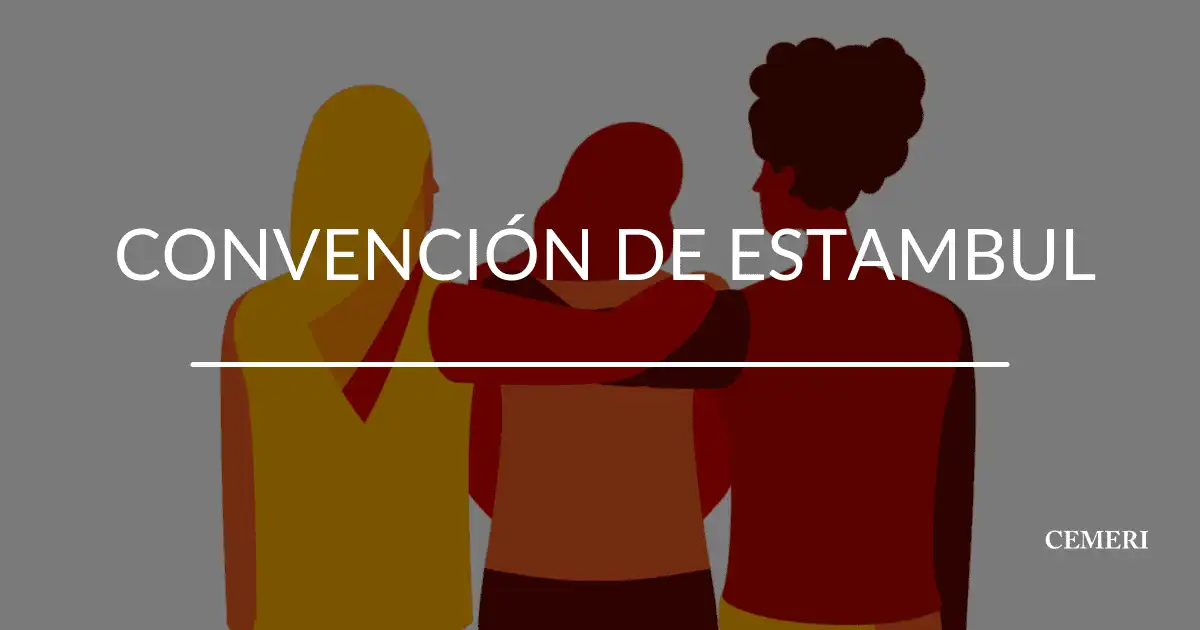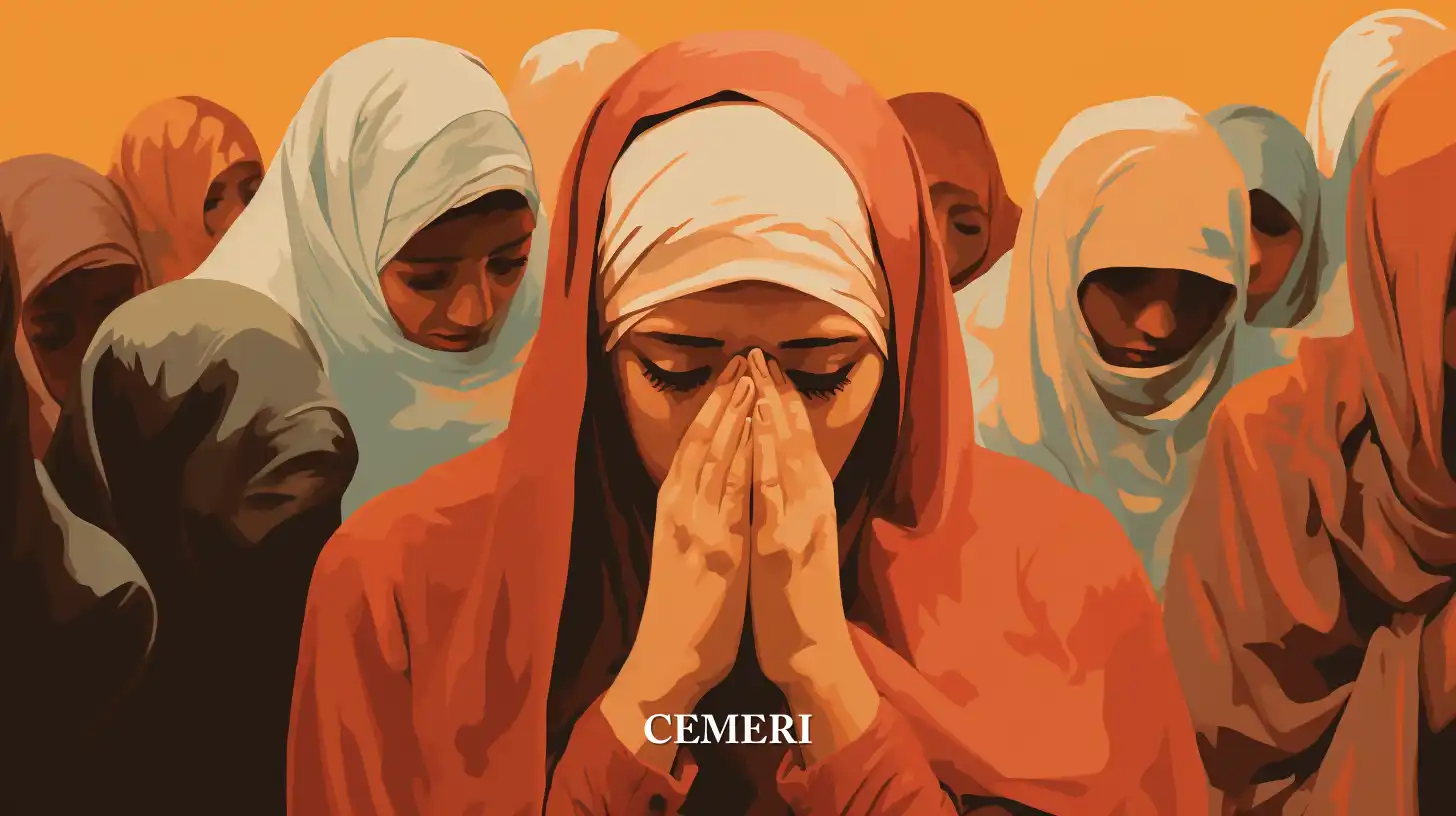Encyclopedia
Marco Olivera
What is the Istanbul Convention?
- It is an international treaty to help combat violence against women and girls.

The Council of Europe Convention on preventing and combating violence against women and domestic violence, better known as the Istanbul Convention or Istanbul Convention, is an international treaty to help combat violence against women and girls. It was adopted in May 2011 by the Committee of Ministers of the Council of Europe and entered into force in August 2014.
The Convention is the first European instrument that has as its legal objective, that is, it is binding, to prevent gender violence, protect victims of violence and punish aggressors. The instrument explains what countries must carry out to prevent and combat violence against women and domestic violence.
Some of the measures are awareness raising, data collection and legal measures (for example, recognizing that forced sterilization or female genital mutilation is a form of violence against women). The goal is for each government to take part in prevention, prosecution and protection activities.
Violence, including crimes that disproportionately affect women, including rape and domestic violence, is a clear violation of human rights and damages human dignity, gender equality and is therefore a breach of the law in many countries. This type of gender-based violence has been a focus of international attention for several decades and progress has been made.
However, although countries in Europe had enacted laws on violence against women, prior to 2014, there was no comprehensive European framework that set standards on prevention, protection, prosecution and adequate provision of services to respond to the needs of victims. and people at risk. The Istanbul Convention now provides such a framework.
On November 25, on the international day against domestic violence, an artist shows her work in Bonn. Photo: Mika Baumeister
States Parties to the Convention
33 European countries have ratified the Convention.
The 13 countries that have signed but not ratified the Convention are Armenia, Azerbaijan, Bulgaria, the Czech Republic, Hungary, Latvia, Liechtenstein, Lithuania, Moldova, Russia, Slovakia, Ukraine, and the United Kingdom.
The European Union signed but did not ratify the Convention.
Türkiye leaves the Istanbul Convention
In 2021, the President of Turkey, Recep Tayyip Erdogan, made the decision to withdraw his country from this agreement. This news caused an impact in the international community, but some politicians and activists asked for a review of the past to verify the forms of public discrimination carried out by the president, such as on issues of feminism and homosexuality.
In a single-paragraph statement issued on March 20, the Turkish president [withdrew his country from the Istanbul Agreement](https://www.france24.com/es/europa/20210320-turkey-european-withdrawal-agreement -violence-macho). Therefore, in one fell swoop, and going completely against Turkey's constitution, Erdoğan ended Turkey's participation in a human rights treaty, which was signed in Istanbul.
During two decades in power, Erdoğan and his Justice and Development Party (AKP) created an authoritarian regime with strong Islamist values, stifled pluralism and silenced dissenting voices, including political parties, politicians, journalists, lawyers, activists and students.
Erdoğan's decision to withdraw from the Convention highlights one of Turkey's most enduring and pressing social problems: gender-based violence against women. Official figures show that, in 2020, 300 women were murdered, but it is estimated that the real figure is higher, since many victims are classified as suicides.
Erdoğan himself has officially said that he does not believe in equality between women and men. In a speech she gave in Istanbul on women's rights, she said: “[You can't put men and women in equal positions, that goes against nature because their nature is different](https://www. elmundo.es/internacional/2014/11/24/54736e4922601d7a588b456e.html)”. He has never stopped insisting that he is against gender equality.
Women continue to stand up to denounce and combat Islamist and macho authoritarianism in Turkey. Despite the pandemic and its associated restrictions, the organization of the female population has led to massive protests.
Women's organizations have urged the Council of Europe to act, while some women have even filed individual lawsuits calling for the withdrawal to be annulled.
Why is the Istanbul Convention effective in combating gender-based violence?
Unlike other international treaties to address gender violence, the Istanbul Convention provides for the implementation of comprehensive and coordinated policies between national and government agencies involved in prevention, prosecution and protection activities.
The Convention defines and criminalizes various forms of violence against women (including physical, sexual and psychological violence, sexual harassment, female genital mutilation, forced marriage, forced abortion and forced sterilization). It prevents violence by forcing parties to invest in education, expert training, and treatment programs for offenders.
It also protects victims by forcing States to establish appropriate support services (ie a national toll-free hotline, shelters, and medical, psychological, and legal advice). Establishes an obligation for parties to collect data on gender-related crimes. It addresses asylum and migration while establishing refugee status.
Likewise, it introduces a different definition of 'gender', as ''the socially constructed roles, behaviors, activities and attributes that a given society considers appropriate for women and men'' as opposed to the usual definition based on the sex of the person . It covers boys and men, as well as girls and women as potential victims, particularly of domestic violence and forced marriage.
Implementation and monitoring of the Convention
To ensure the effective implementation of the Convention, a two-pillar monitoring mechanism has been established, made up of a body of independent experts (called GREVIO, which produces reports on Convention topics), and a Committee of the Parties (which monitors GREVIO, informs and makes recommendations to interested parties).
In addition, two types of follow-up procedures were established.
First, there is a country-by-country evaluation procedure, which starts with a baseline report and concludes with final reports and conclusions adopted by GREVIO.
Secondly, GREVIO may initiate a special urgent investigation procedure, when there is reliable information indicating that action is required to prevent a serious, massive or persistent pattern of any of the acts of violence contemplated in the Convention.
As of November 2021, GREVIO has assessed the implementation of the Convention in 13 EU Member States (Austria, Belgium, Denmark, Finland, France, Italy, Malta, the Netherlands, Poland, Portugal, Slovenia, Spain and Sweden). In 2021, GREVIO issued a comparative analysis, identifying common challenges, promising practices, and issues faced by each of the countries. It found that many of them have used the Convention as impetus to develop laws and policies that consider the specific experiences of women who experience violence.
Sources
Hubo un error al cargar las fuentes

